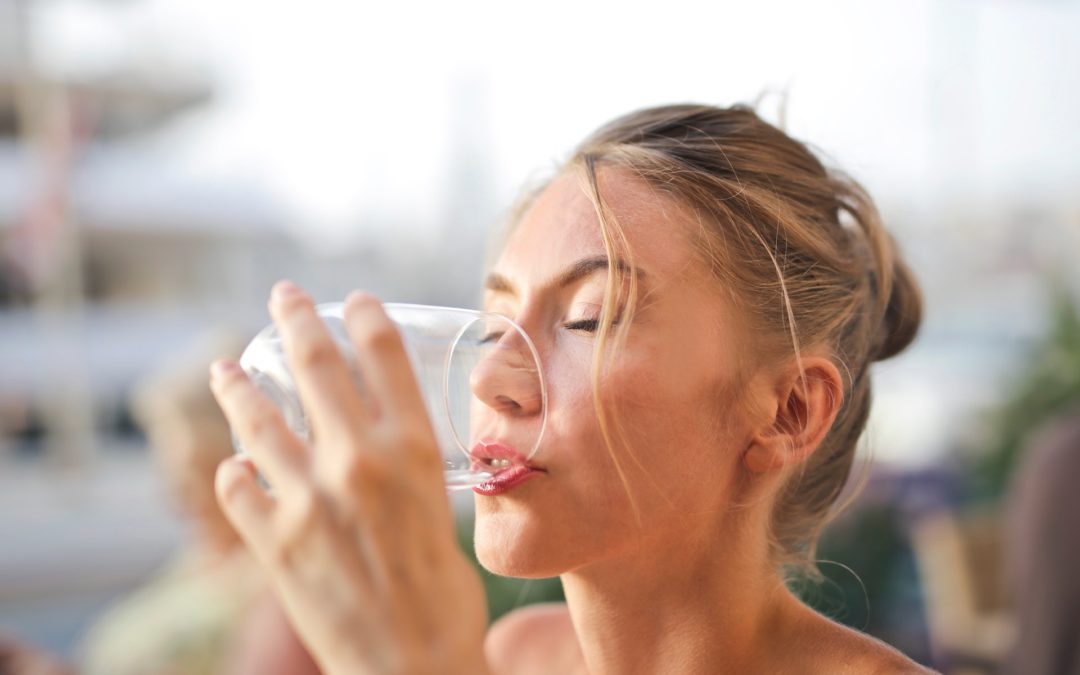For some people, drinking enough water each day can be a challenge. However, getting enough H2O is critical for numerous reasons, including improved physical and mental health. When feeling anxious or depressed, you may not immediately consider how much water you’ve had to drink…but you should! Surprisingly, hydration can have a significant impact on mental health. Proper hydration aids not only in physical health, but also in cognitive function. When you consider that the human body is comprised of approximately 60 to 75% water, this fact makes more sense. A 2018 study found that adults who drank more water had a lower risk of developing anxiety and depression. The brain counts on water to function properly, and mental health is primarily driven by brain activity. The bottom line is that water is a nutrient your brain needs to keep your mental health in check.
Depression is a complex and nuanced mental illness, so this is not to say that depression and anxiety can be cured by simply drinking water. However, not drinking enough water does have a negative impact on cognitive performance, because it disrupts the homeostatic function of your body’s internal environment. Even mild dehydration impairs your immediate memory skills, your attention span, and your psychomotor skills. Dehydration also has a significant impact on mood.
Benefits of Proper Hydration
Improved Mood
People who drink less water tend to be more agitated, unhappier, and tenser than their water-drinking counterparts. Dehydration also negatively affects dopamine and serotonin balances in the brain, which leads to increased feelings of depression and anxiety. A quick way to improve mood when feeling anxious or depressed is to drink some water.
Decreased Stress
This one is a double-edged sword because dehydration can cause stress, and stress can cause dehydration. Stress causes your adrenal glands to produce the stress hormone cortisol. Through chronic stress, adrenal glands can become exhausted, leading to a depletion of electrolytes. Consuming more water each day can help to avoid this issue, resulting in lower stress levels.
Physical Health
Staying hydrated can help to increase strength and stamina, as well as decrease your likelihood of developing kidney stones, having reduced blood volume, suffering from decreased skin blood flow, and decrease the chance of seizure. Drinking water helps to moderate our internal temperature, decreases the number of headaches we get, helps with maintaining a healthy weight, and aids in electrolyte regulation and cell hydration. When we do not feel our best physically, our mental health can be compromised…so drink up!
How to Increase Water Intake
1. Water Bottles
Along with being eco-friendly, keeping a water bottle can also help you hit your goals. There are lots of cool water bottles that will remind you to drink more throughout the day. Some have certain goals with corresponding times, and others light up when it’s time to take a sip.
2. Set reminders
There are tons of apps out there that will send you a notification when you need more water. Or, another tactic is to set various alarms throughout the day so that you don’t forget.
3. Keep water visible
Out of sight out of mind is the old saying, and this can be true when applied to water intake. To increase hydration, make sure you have a water bottle in clear view during the day.
4. Enhance your water
If you can’t stand the taste of plain old flat water, opt for sparkling water, or fruit-infused H2O. In addition, eating fruits and vegetables that have high water content can help. Some examples are watermelon, cucumbers, strawberries, peaches, and more.
For those with mild cases of depression, IV hydration is a phenomenal option. It can aid in both stress reduction and help combat seasonal sadness. IV hydration can also improve athletic performance, increase immune health and energy levels, and help with rehydration. IV hydration is more than just fluids. It helps to replenish electrolytes as well as other nutrients your body needs to function properly. For those with more severe cases of depression or treatment-resistant depression, ketamine infusion therapy can be life-changing.
Staying hydrated can be seen as a commitment to self-care. The amount of water a person requires per day can vary, but in general, women should strive for 11.5 cups of water while men should try to hit 15.5 cups. Staying hydrated is not a cure-all for depression, but it can help in mild cases. If you or a loved one is suffering from mild depression, a more severe case, or treatment-resistant depression, our clinic is here to help.
Contact JoyDeVie Infusions

